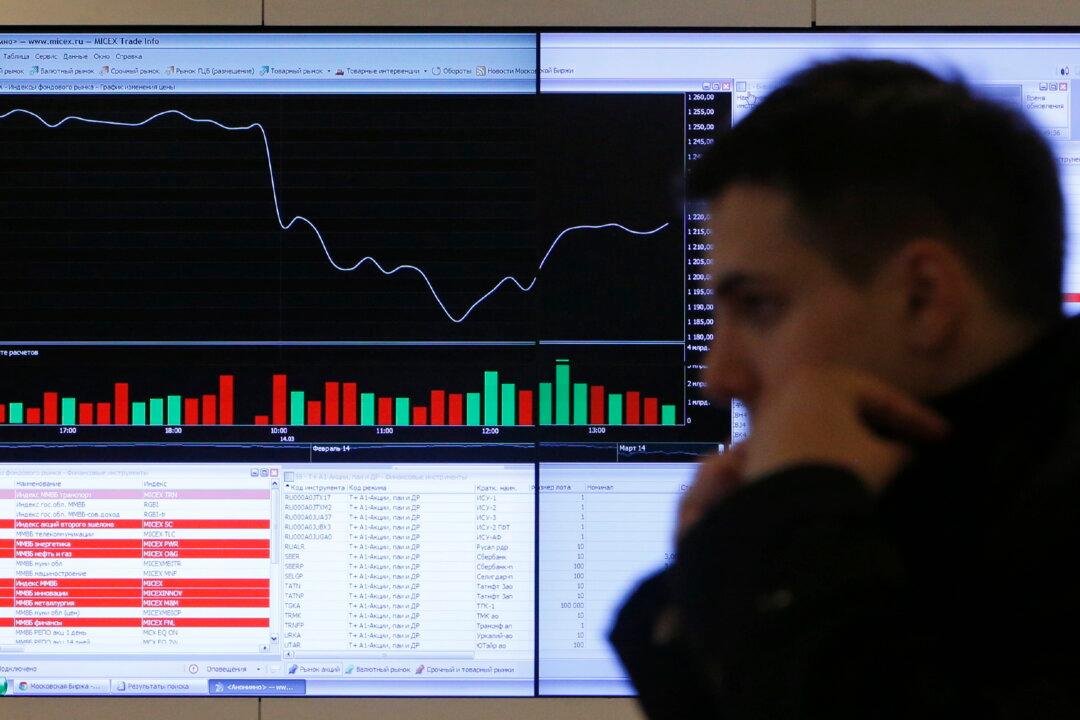Russian stocks plummeted on Thursday and the country’s currency sank against the dollar to its lowest level on record, prompting Russia’s central bank to announce emergency support measures, as news of the long-anticipated Russian military action against Ukraine hit headlines.
In a televised address, Russian President Vladimir Putin announced a “special military operation” in Ukraine that he claimed was meant to protect civilians and demilitarize Ukraine, but which Western leaders denounced as a baseless act of aggression.





